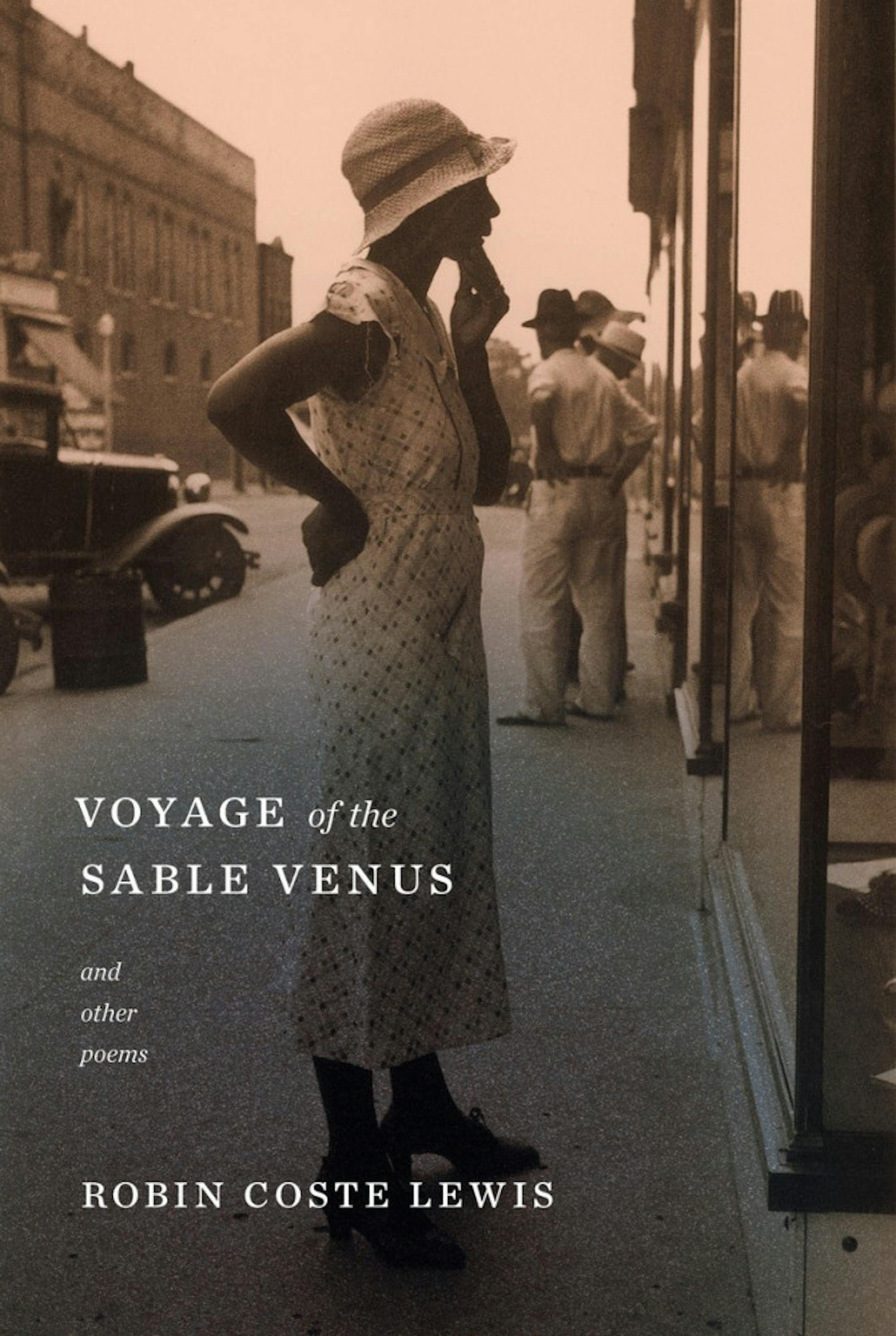Robin Coste Lewis gave a reading this Monday as part of the Center for the Humanities At Tufts (CHAT)'sPoets Series. The event was co-sponsored by the Toupin-Bolwell Fund, the Dean of Arts and Sciences, the Diversity Fund, the Departments of English, Education and Drama and Dance, the Consortium of Studies in Race, Colonialism, and Diaspora and the program in Women’s, Gender, and Sexuality Studies. After the reading, Lewis held an extensive question-and-answer session.
The Poets Series seeks to bring contemporary American poets to campus, and Lewis is an amazing poet of many talents. She was a Goldwater Fellow in poetry while pursuing her Master of Fine Arts from New York University's creative writing program. She then obtained a Master of Theological Studies in Sanskrit and comparative religious literature from the Harvard Divinity School.Her debut book of poetry, “Voyage of the Sable Venus” (2015), received the National Book Award for Poetry and is also the dissertation for her Ph.D. in Creative Writing and Literature from the University of Southern California.
“Voyage of the Sable Venus” is a deeply complex book, as it combines Lewis’ creative writing talent with her expertise in the history of photography and visual studies.
In the prologue of a long narrative poem also titled "Voyage of the Sable Venus," Lewis writes, “My intent was to explore and record not only the history of human thought, but also how normative and complicit artists, curators, art institutions, and art historians have all been participating in – if not creating – this history.” She refers to the horrific history of dehumanization and subjugation of black people, especially women, in the United States and the subsequent sanitization and erasure of slavery.
While exploring the history of human thought is a daunting challenge, “Voyage of the Sable Venus” works towards this goal with astounding skill and resonance. However, Lewis' accomplishment and recent fame were not the only factors that brought her to Tufts.
In an interview with the Daily, English Professor of the Practice Natalie Shapero said that she and Lisa Lowe, director of CHAT and fellow English professor, wanted to bring in a writer for the Poets Series who would appeal to students who focused on literature as well as students interested in other fields such as art history, Africana studies and classics.
"I had read Robin [Coste Lewis'] book and was so taken with the poems and how they incorporate such a vast range of disciplines," Shapero said. "I had also seen Robin read before, and I found her to be a fantastic reader who was frank and generous in her engagement with students."
Lewis also has a personal connection to Tufts. She explained that when in college, she "fell magically in love" with the daughter of Mohammed Alwan. Formerly a senior lecturer of Arabic at Tufts, Alwan shares Lewis' love of poetry and was one of the first people to translate Langston Hughes’ poetry into Arabic. Alwan attended the reading, and Lewis dedicated the first poem of the night, “Second Line,” to him. "Second Line" is about Lewis' own father, and she explained the influence Alwan had on her life and poetry, and how she saw him as a second father.
After “Second Line,” Lewis read poems that centered on the theme of motherhood, including “Mother Church: Day 3,” a poem from a series that she wrote for her son’s second birthday. Each poem from the Mother Church series drew on several different forms of architecture. For example, "Mother Church: Day 3" was inspired by Kin Kletso, part of the Anasazi ruins in Chaco Canyon in New Mexico.
Lewis also read “On the Road to Sri Bhuvaneshwari,” a 10-minute poem that encapsulated many of the elements she had touched on earlier in the evening. The poem was, in many ways, about motherhood and how it shapes one’s view of the world. Bhuvaneshwari is the name of a town in India as well as the sovereign queen of the universe in Hinduism.
In the poem, Lewis recalls an experience she had in India where she saw a water buffalo give birth to a stillborn calf: “The calf is born dead. A folded and wet black nothing. / It falls out of its mother – still – onto the ground.” A group of men calms the hysterical water buffalo, as “She must turn around and see / what has happened to her, or she will go mad.” Then, “She lowers her face into it – into the black / slick dead thing folded into the ground."
In the poem's final stanzas, Lewis applies the water buffalo's narrative to herself: “I have to go back / to that wet black thing / dead in the road. I have to turn around. / I have to put my face in it.” These lines encapsulate what “Voyage of the Sable Venus” begins to do. Lewis traces the history of her own ancestry and the horrendous history of black Americans as well as how they have been depicted visually, and she puts her face in it.
Lewis explained that after a nearly fatal accident that left her with permanent brain damage, she returned to her studies and gained a deeper understanding of poetry and knowledge. In her life as well as her poetry, Lewis most certainly is unafraid to delve where others have not. As she says in one of the last lines of "On the Road to Sri Bhuvaneshwari," “I would not have it any other way.”
Robin Coste Lewis reads poems from 'Voyage of the Sable Venus' at CHAT's Poets Series

Robin Coste Lewis read poems from her book 'Voyage of the Sable Venus' on Mon, Mar 6.





